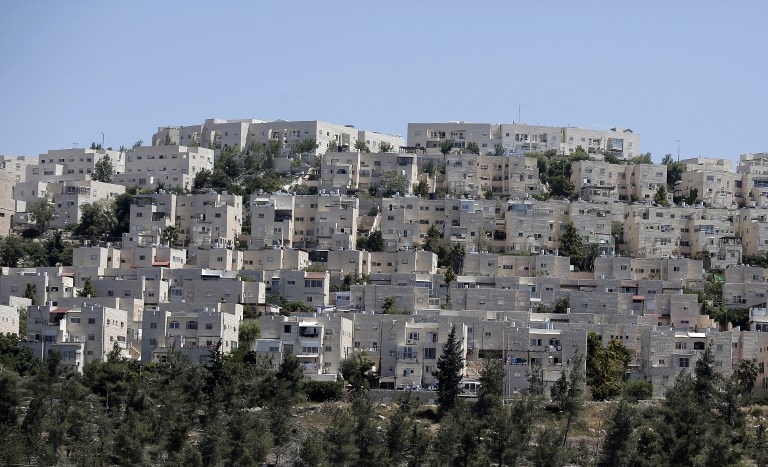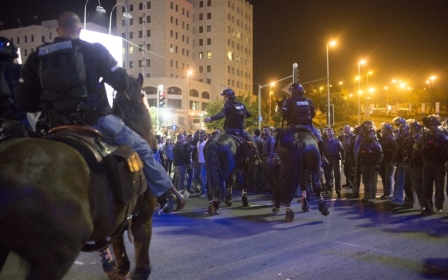EU joins criticism of East Jerusalem settlement plan

The European Union on Saturday added to US and Palestinian criticism over Israeli plans to build 900 settler homes in annexed East Jerusalem.
"Israel's determination to continue its settlement policy, despite the urging of the international community, not only threatens the viability of the two-state solution but also seriously calls into question its commitment to a negotiated agreement with the Palestinians," the EU said in a statement.
"Settlements are illegal under international law," the statement said.
Settlement watchdog Peace Now reported the latest batch of construction approvals on Thursday, just hours after Israeli Prime Minister Benjamin Netanyahu formed a new rightwing-religious coalition government.
The new homes will be built in the East Jerusalem settlement neighbourhood of Ramat Shlomo following a decision late on Wednesday by the city's district planning committee, Peace Now spokeswoman Hagit Ofran told AFP.
In a briefing on Thursday at the US State Department, spokesman Jeff Rathke called the decision "disappointing" and "damaging".
"This is a disappointing development, and we’re concerned about it just as a new Israeli government has been announced," he said. "Moving forward with construction of housing units in East Jerusalem is damaging."
"We continue to engage with the highest levels of the Israeli government, and we continue to make our position clear that we view this as illegitimate," Rathke said.
In March 2010, Israel's interior ministry announced a plan to build 1,600 settler homes in Ramat Shlomo, an ultra-Orthodox Jewish neighbourhood in mainly Arab East Jerusalem.
That announcement came as US Vice President Joe Biden was visiting Israel, provoking fierce American opposition and souring relations with Washington for months.
In his re-election campaign in March this year, Netanyahu vowed to step up settlement construction in East Jerusalem, which Israel captured in 1967 and later annexed in a move never recognised by the international community.
Palestinians decried the new Israeli government, in which the far-right Jewish Home is a key partner, with senior official Nabil Shaath blasting what he termed a "colonial settler cabinet".
The Palestinians demand that any peace deal include Israel's withdrawal from occupied Palestinian territory, recognition of East Jerusalem as the Palestinian capital, and the right of return for Palestinian refugees who fled Israel after the Jewish state's creation in 1948.
Israel considers the whole of Jerusalem its indivisible capital.
Middle East Eye propose une couverture et une analyse indépendantes et incomparables du Moyen-Orient, de l’Afrique du Nord et d’autres régions du monde. Pour en savoir plus sur la reprise de ce contenu et les frais qui s’appliquent, veuillez remplir ce formulaire [en anglais]. Pour en savoir plus sur MEE, cliquez ici [en anglais].




